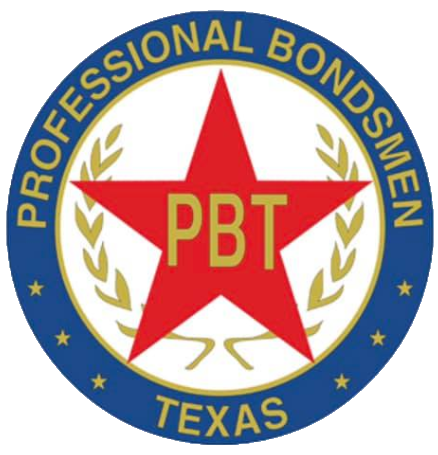Follow Us x
Becoming a Bondsman
What the Heck Do Bondsmen Do?
Requirements for Becoming a Bail Bondsman in Texas
Texas laws regulate the qualifications and licensing requiring for bail bondsmen. To be eligible, you must be a U.S. citizen residing in Texas who is at least 18 years old and has never been convicted of a felony or misdemeanor involving moral turpitude. A corporation can also be a licensed bail bondsman if it is chartered or admitted to do business in the state and qualifies under the Texas Insurance Code to write fidelity, surety and guaranty bonds. See Title 1. Code of Criminal Procedure Chapter 17 in full context below.
Bondsmen -- Reference Terms
- "Bail bond" means a cash deposit, or similar deposit or written undertaking, or a bond or other security, given to guarantee the appearance of a defendant in a criminal case.
- "Bail bond surety" means a person who:
- executes a bail bond as a surety or co-surety for another person; or
- for compensation deposits cash to ensure the appearance in court of a person accused of a crime.
- "Board" means a county bail bond board.
- "Bonding business" or "bail bond business" means the solicitation, negotiation, or execution of a bail bond by a bail bond surety.
- "Final judgment" means a judgment that disposes of all issues and parties in a case.
- "Person" means an individual or corporation.
- Contractual Agreement – Established bail bondsmen enter contractual agreements with a variety of courts around the city and county, stipulating to posting a bond and agree to be irrevocably bound by the agreement. In return, the court allows them to bail a defendant out of jail by signature--without having to front the cash for the transaction. The court understands that either the defendants will return on their scheduled court date, or the bail bondsmen will pay the entire bail amount to the clerk of the applicable court. Because the bond the bail bonds office agrees to is irrevocable, the court knows it will receive payment. Although at face value this looks like a situation that is beneficial for only one side, the fact that the bail bonds office is now in hot demand by defendants wishing to avail themselves of this prearranged agreement places the bail bondsmen in a good position to make a lot of money
- Nonrefundable Fee The bail bonds office requires the defendant to pay 10 percent of the bail bond amount at the beginning of the transaction. This is a nonrefundable fee, even if the defendant shows up for trial as scheduled. A bail bonds office that judiciously bails out low flight risks that carry high bail amounts can make money simply by taking in the 10 percent fee. For example, if a defendant is required to post $50,000 bail, the bail bondsman will seek a signature release of the individual and take $5,000 as up-front payment to do so. If the bail bonds office bails out 10 such defendants in one week, they will have made $50,000.
- Tangible Assets >Bail bondsmen see a sizable profit only if the defendants they bail out of jail show up for their scheduled court hearings. If the defendants fail to do so, the bond is called in by the court. Working with the example from above, if the 10 defendants who were bailed out fail to appear for their court dates, the bail bondsmen are liable for $500,000. To ensure that this does not happen, bail bondsmen require a tangible security to be placed with them, such as the title to a valuable car, or they place a lien on a defendant's home. If the bond is forfeit, the bail bonds office seizes the property and sells it to recoup the money paid out via the bond to the court.
Bail Bond Boards
These are the work requirements for Bail Bond Board Counties
A person applying for a new license must work for a bail bond business for 12 continuous months full time and have documentation to prove it and must have 8 hours of Continuing Education within the last 24 months. This would apply in a Bail Bond Board County. This is the work requirements only!!!
The Financial Requirements are as follows for: Bail Bond BOARD Counties
- A person can deposit $50,000.00 with county and can write bail at a ratio of 10-1.
- A person can put real property up as security that has a net worth of $ 50,000.00 but the ratio will be 5 to 1 (years 1-2), then 6 to1 for (years 2-4), (years 4-6) at 8-1 and for (years 6+) at a ratio of 10-1.
- A person can get an insurance company (corporate surety) to back them and be an agent for them.
Criminal Code Counties (Non-Bail Bond Board Counties)
A person in these counties must apply at the Sheriff's office in that county and comply with the regulations of each counties sheriff.
In Most case an applicant will have to put up a financial statement to secure the bonds they write with that counties department.
NOTE: All License Bondsman in the State of Texas must take the Continuing Education Classes 24 months prior to their application for a new license or before their renewal of their existing license.
Training and Education - Overview
(In a Bail Bondsmen "COUNTY BOARD" County) - -Before you can apply to become a licensed bail bondsman, you will have to complete an apprenticeship under a licensed Texas bondsman.
This means:
- continuous employment for at least a year and not less than 30 hours per week.
- during this time you will have to have performed all the tasks of a bondsman.
- it's also necessary to complete eight hours of in-person classroom education in criminal law or bail bond law courses approved by the State Bar of Texas and offered by an accredited Texas institution of higher learning.
- 8 hours of educational courses are offered through-out the year by the Professional Bondsmen of Texas at www.pbtx.org .
Application Requirements
The application for professional bail bondsman license must be submitted to the County Bail Bond Board (if applicable) or the state. The application must include:
- your name, age and address
- the name under which you plan to do business
- the address of each place where your business will be conducted
- and a list of nonexempt real property (see Section 1704.155) to be executed in trust to the board as collateral on bonds
- In addition, the application must include a sworn financial statement by you
- a declaration of compliance with Texas law
- three letters of recommendation from reputable persons
- a set of fingerprints
- a passport photo
- and the $500 filing fee.
After Application
If... there is a County Bail Bond Board:
- they will conduct initial inquiries into your application
- there will also be a hearing by state representatives to determine preliminary acceptance
Education Needed to Become a Bail Bondsman
A bail bondsman is a person qualified by the legal system to post bail on a specific inmate, using the bondsman's personal assets to underwrite the bail, on behalf of someone who wants the inmate freed but cannot post bail. In return, a bail bondsman often charges a percentage of the bail posted for the inmate. State certified bail bondsmen often have the same powers as insurance agents. To earn their certification, bail bondsmen are usually required to earn their high school diploma and take anywhere from 8 to 20 hours of state accredited bail bondsman instruction. (Texas requires 8 Hours).
Minimum Requirements
Basic educational requirements for individuals looking to become bail bondsmen usually consist of a high school diploma or its equivalency. Also, the applicant must be at least 18 years of age or older. Other basic eligibility criteria includes submitting a copy of your valid driver's license; you will also have to undergo a background check and have your fingerprints on record with your local law enforcement agency.
State Regulations
Rules on bail bondsman educational requirements vary from state to state. Some states, including Illinois, Kentucky and Wisconsin, have no process for certifying bail bondsmen but, Texas does. Contact the Department of Insurance or the state governmental agency that licenses insurance professionals to find out any educational requirements needed to become a bail bondsman. Most states require ATLEAST 8 hours (as does Texas) of classroom instruction in bail bondsmen procedures and protocol before allowing an individual to become a certified bail bondsman. In SOME STATES, professional bondsmen must complete 20 hours of department-approved training.
How Do Bail Bondsmen Make Money?
The Court allows bail bondsmen to bail a defendant out of jail by signature.
Download the Texas Statutes - Section 1704.152 by clicking on the button below







